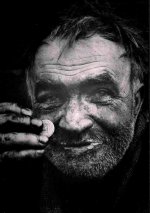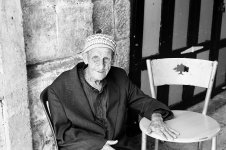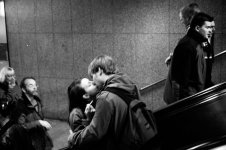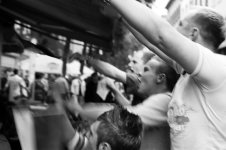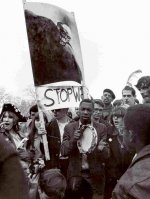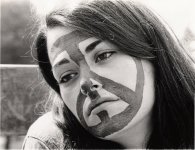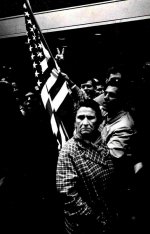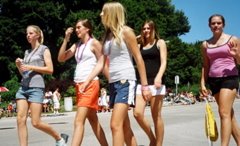I feel almost the need to apologize for reviving this thread, but I am under the very strong effect of a TV movie, "I am your man" - an autobiographic story by Leonard Cohen, in which he speaks quite few sentences, but of great artistic sense, which puts this thread and its starting question under a very interesting perspective
Perhaps the most striking common denominator on what the old aged Leonard Cohen has to say about himself is his deep humbliness. You hear him between the lines as if he was saying Poetry, Art, Life are great. Not me, I have been just a lucky guy.
What a great contrast between how LC speaks about himself and how HCB speaks about himself, if you take for example that UTUBE interview. HCB seen under LC light looks frankly ridiculous.
It seems to me there is another basic difference in both artists to be given attention. During the last 30 years, Cohen seems to have become better and better as aging advanced, re-inventing his styles according to several factors, while I ask if the same can be said about HCB.
Now, at this stage of my sermon, or even before, you are right if you ask what the hell is between all these and the former question of the thread. So here I go.
First, street photography is or can be approached as an Art too. In these grounds we can find some few common things with fashion photography, provided we approach the latter as Art too.
Now let ask ourselves "how difficult is Art ?", "is Art for me ?". And I think I can better answer these questions if I am inspired by LC, than by HCB.
From LC I can learn that I must be absolutely sincere with myself, and recognize the square I am in, now, or look for it and move forwards accordingly.
Furthermore, the word "square" I used here is meant to point the creative space I dwell in. This square will never be empty because it also includes my feelings, my wishes, my aspirations. But I must study it, perfection it, before mooving to the next one.
Kindly notice that in the question "how difficult is street photography", there is no dimension of time and progress. But definitely there is an extremely important ingredient: curiousity.
Each of us must not be a recognized big shot. On the contrary this motivation will make things harder. But we can find our own square in which we will excell, more and more, after a lot of traspiration and focus.
Cheers,
Ruben




